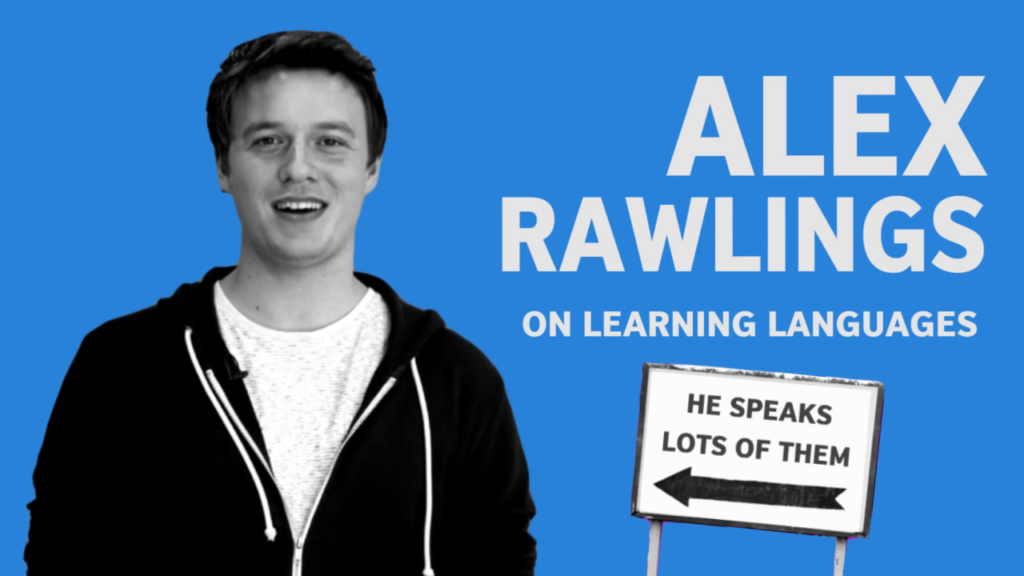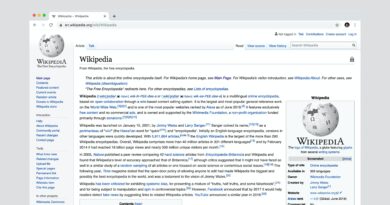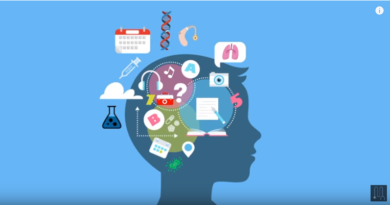Vídeo | Four ways to get better at languages
Neste vídeo de Alex Rawlings, com duração de 2m23s, ele nos mostra quatro maneiras de melhorarmos nossa fluência em idiomas. São elas:
- Falar mais;
- Praticar, praticar e praticar ainda mais;
- Arrumar um parceiro para conversação ou ir a encontros para prática de idiomas;
- Conversar consigo mesmo.
Na transcrição do vídeo ele explica em mais detalhes cada um destes itens e como podem ser incorporados ao seu dia a dia.
Alex Rawlings conhece mais de quinze idiomas e é o autor dos livros “How To Speak Any Language Fluently” e “From Amourette to Zal: Bizarre and Beautiful Words from around Europe”.
O áudio em inglês extraído do vídeo pode ser baixado clicando aqui. Grave este áudio em seu telefone celular e aproveite a semana para praticar sua compreensão da língua inglesa falada.
| English Transcript | Tradução |
|---|---|
| Sometimes, when we're learning a language, we can feel very frustrated. | Às vezes, quando estamos aprendendo um idioma, nós podemos nos sentir muito frustrados. |
| Despite all the hours that we're putting in and all of the hard work that we're doing, | Apesar de todas as horas de estudo e todo o trabalho duro, |
| when it comes to actually speaking the language, it can sometimes come out stuttered, full of mistakes, | quando chega a hora de falar, é comum gaguejar e errar bastante, |
| and sound like we're not really that good. | dando a impressão de que não sabemos tanto assim. |
| This can lead to a lot of self-doubt. | Isso pode causar muita insegurança. |
| It can lead us to ask questions like: 'Can I really learn this language?' or | E isso pode nos levar a nos questionarmos: "Será que eu consigo mesmo aprender esse idioma?", ou |
| 'Have I perhaps reached my limit?' | "Será que eu já cheguei ao limite do meu potencial?" |
| The way to start speaking a language more fluently and more proficiently is just to practise speaking it. | A melhor solução para falar com mais fluência e proficiência é, simplesmente, falar mais. |
| Practise, practise and practise again. | Pratique, pratique e pratique novamente. |
| Here are some tips that you can use to get more practice at speaking the language. | Vou dar algumas dicas sobre como praticar o idioma com mais frequência. |
| So, the first one is: Get a conversation partner. | Primeiro: Encontre um parceiro de conversação. |
| You can find a lot of people who will be happy to practise languages with you online. | É muito fácil encontrar pessoas que queiram praticar conversação pela internet. |
| Or, otherwise, if you go to a meetup group | Outra opção é frequentar um grupo de conversação ou um |
| or a student event, I'm sure you will find plenty of people who you can practise your languages with. | evento para estudantes. Tenho certeza de que você encontrará muitas pessoas com quem praticar o idioma. |
| If you don't know where to find a conversation partner, | Se não encontrar um parceiro de conversação, |
| the other thing you could do is start to talk to yourself. | a outra coisa que você pode fazer é começar a falar consigo mesmo. |
| Or, if you're not comfortable talking to yourself in public, just think to yourself. | E se você tem vergonha de falar sozinho em público, é só pensar no idioma. |
| Start narrating to yourself what you're doing and working out | Comece a narrar para você mesmo o que você está fazendo e perceba |
| what things you're comfortable describing and what things you're not yet comfortable talking about. | sobre quais assuntos você fala com mais segurança e em quais você precisa melhorar. |
| Then, when you go home, you'll be able to fill in those vocabulary gaps, | Quando chegar em casa, pesquise o vocabulário onde encontrou mais dificuldades |
| and the next day try again. | e tente novamente no dia seguinte. |
| The third thing you can do is to learn vocabulary like you want to use it | Você também pode estudar o vocabulário no contexto em que você deseja usá-lo. |
| So, instead of just learning the word for 'door', why not learn it in a phrase | Por exemplo, em vez de aprender apenas a palavra "door", estude frases como |
| like 'open the door', 'close the door' or 'behind the door'. | "open the door", "close the door" ou "behind the door". |
| That means that, when you need to talk about things like that, | Desta forma, quando precisar falar sobre um assunto, |
| you're immediately going to have phrases that you can start using. | você se lembrará imediatamente das frases relacionadas a ele. |
| Finally, whenever you learn a new grammar point or anything really in the language, | Finalmente, sempre que você aprender uma nova regra gramatical ou qualquer outro tema do novo idioma, |
| always think about how you could use this. | sempre pense sobre formas de usar este aprendizado. |
| Imagine a scenario in which you'd use it naturally, with friends, as part of your normal life, | Imagine que você já está usando esta regra com naturalidade, entre amigos, no seu cotidiano, e |
| and then immediately you'll find that what you're learning theoretically | descobrirá que todo o aprendizado teórico |
| will be much more applicable to your speaking of the language. | pode ser aplicado mais facilmente ao falar o idioma. |
| Share your language-learning tips and experiences by leaving a comment below, | Deixe um comentário abaixo e compartilhe experiências e dicas sobre o aprendizado de idiomas, |
| and make sure you check out the other videos in this series. | e não se esqueça de conferir também os outros vídeos desta série. |
Contagem de palavras
A tabela abaixo exibe as 30 palavras mais frequentes encontradas neste vídeo bem como o número de vezes em que aparecem.
| Freq. | Palavra | Freq. | Palavra | Freq. | Palavra |
|---|---|---|---|---|---|
| 20 | to | 16 | you | 16 | the |
| 12 | a | 10 | and | 9 | that |
| 9 | can | 8 | of | 8 | language |
| 7 | it | 7 | in | 6 | you're |
| 6 | practise | 6 | or | 5 | speaking |
| 5 | like | 4 | yourself | 4 | your |
| 4 | when | 4 | what | 4 | we're |
| 4 | use | 4 | this | 4 | start |
| 4 | not | 4 | more | 4 | learning |
| 4 | learn | 4 | is | 4 | find |









